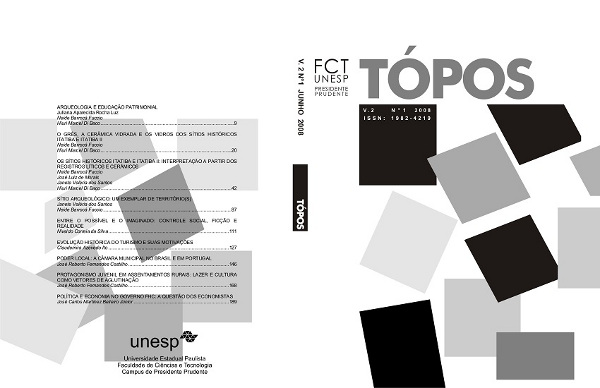ENTRE O POSSÍVEL E O IMAGINADO: CONTROLE SOCIAL, FICÇÃO E REALIDADE
Resumo
Este texto pretende examinar, brevemente, a contribuição do romance ficcional ao desvendamento das relações humanas, envolvendo o uso do controle social sobre determinados grupos e manifestações definidas como violentas. Utiliza a definição de controle como mecanismo de poder disciplinar Foucault (2001) para examinar, comparativamente, por meio do livro de Willian Golding O senhor das moscas, a relação entre modelo de socialização baseado no homem branco europeu e os limites desta proposta em contextos diferentes. Preso a circunstância da necessidade da pura sobrevivência e da disputa intransigente pelo poder, como no romance, o que era tido como protótipo civilizador, escorrega no labirinto instintivo da selvageria. Inserido na realidade de uma sociedade abissalmente desigual, como a brasileira, esse modelo revela-se classificador e excludente. O objetivo central do artigo é o de trabalhar a fina relação entre ficção e realidade sob o ponto de vista do impacto de seus significados para a interpretação sociológica da sociedade.
Palavras Chave: romance de ficção; controle, exclusão.
BETWEEN THE POSSIBLE AND IMAGINED: SOCIAL CONTROL, FICTION AND REALITY
Abstract
This text intends to briefly examine the contribution of the fictional narrative to the unveiling of human relationships, involving the use of social control upon certain groups and demonstrations defined as violent. We use the definition of control as a mechanism of disciplinary power Foucault (2001) to examine, comparatively, through the work of Willian Golding Lord of the flies, the relation between the socialization pattern based on the European white man and the limits of this proposition in different contexts. Bound to the circumstances of the necessity of sheer survival and the intransigent struggle for power, as in the narrative, which was considered the civilizing prototype falls into the instinctive labyrinth of savagery. Into the reality of an abysmally uneven society, as the Brazilian one, this pattern becomes classifier and excluder. The main objective of this article is to deal with the subtle relation between fiction and reality, from the point of view of the impact of their meanings to the sociological interpretation of the society.
Keywords: fictional narrative; control, exclusion.

